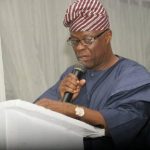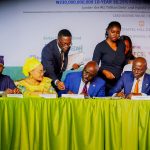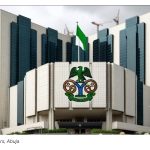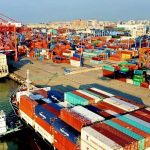Feature/OPED
Corruption as an Enterprise in Nigeria
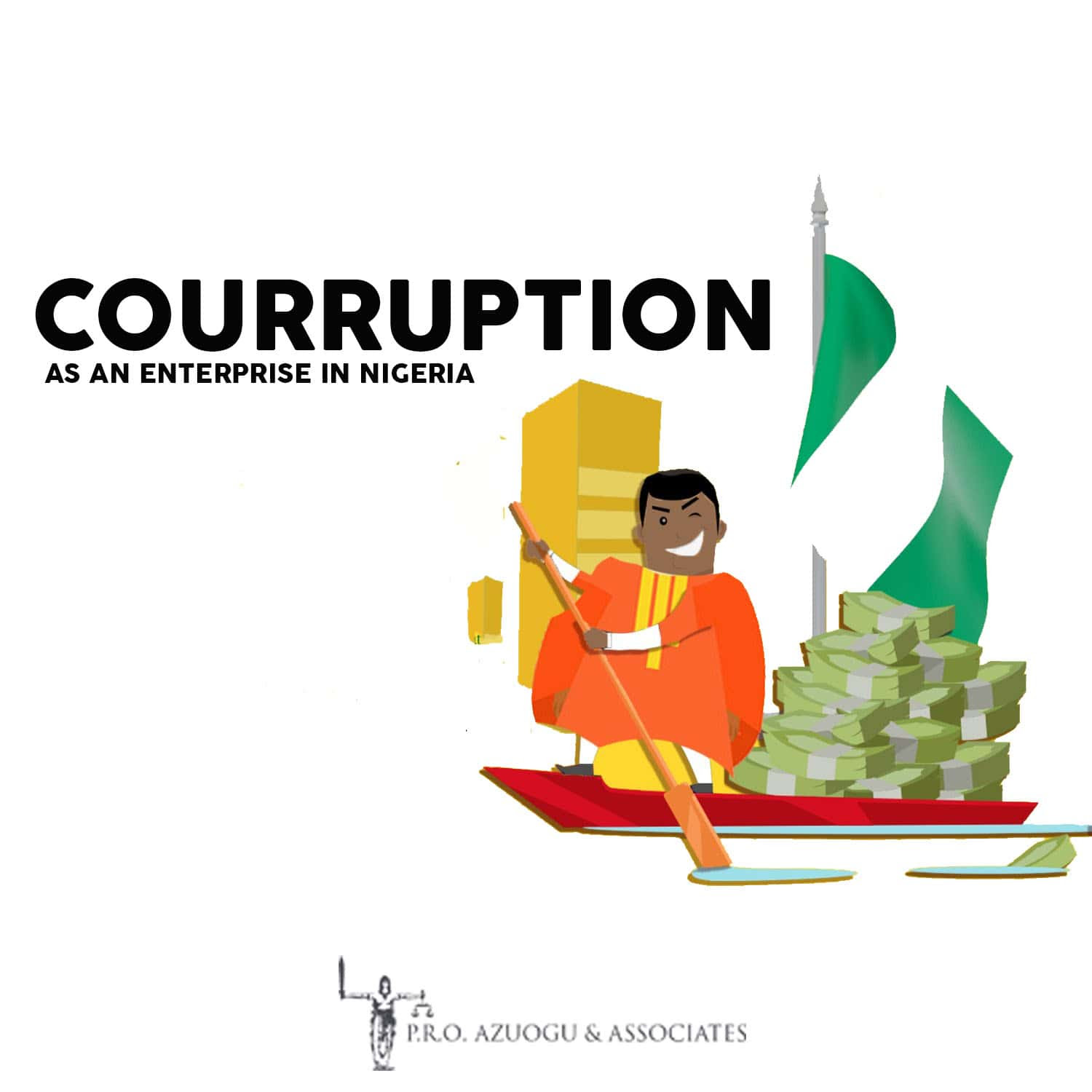
By Pedro Azuogu
Both the American Heritage Dictionary (1981) and Webster’s Comprehensive Dictionary (2010) described corruption as an act of being corrupt.
Corruption derives its meaning from the Latin word corruptus which in itself means tainted, decomposed, putrid, perverted, depraved, deteriorated, debased, dishonest, contaminated, corroded, impure, degenerated, polluted or such like synonyms which portend defilement of fidelity or morality.
As ugly as this word is in describing what is demeaning, it has been elevated to a state enterprise in Nigeria, such that any public official who is not part of the transaction is seen as a non-starter. No wonder then that a former British Prime Minister, David Cameron, opined that “Nigerians are fantastically corrupt”.
A plethora of laws enacted by the Nigerian parliament, including Criminal Code, Penal Code, Police Act, Procurement Act, Independent Corrupt Practices Commission ( ICPC) Act, Economic and Financial Crimes Commission (EFCC) Act, Money Laundering (Prohibition) Act and Terrorism (Prevention) Act among others, are some of the potent efforts made by the Nigerian state to checkmate the activities of unscrupulous elements whose stocks in trade are to subvert the regulatory processes of attaining good governance in the country.
All the agencies of government were established by-laws for their purpose of providing admissible means of interfacing with the citizens, foreign nationals and other sister agencies for the well-being of the people and for developmental strides as they concern the entire country.
It can be eloquently testified and declared here that these laws were all made with good intentions and in the spirit of consummate administrative convenience.
However, suffice it to say without mincing words that adherence to these litanies of laws have always been observed in fragrant breaches with impunity by those who are saddled with the onerous burden of executing them on one hand and by those upon whom they are to be executed, on the other hand, thus rendering the laws inoperative.
In another breadth, the said laws are selectively applied against perceived enemies of the state or such other persons who are vulnerably incapacitated to secure persons that could strongly lend voices on their behalf.
In some cases, most of the human rights lawyers or lawyers from the state-owned Legal Aid Council who, by their callings or demands of the office, are expected to render pro bono legal services to the financial weaklings in order to unravel the logical truth encased in corrupt matters, end up bungling such cases because of probably none or little service charges. But they will prefer to stoutly defend those embezzlers of public funds whose hands in the till cannot be compared because they have millions to pay as legal fees.
Corruption thrives where people have the penchant for subversion and cutting corners in order to beat laid down rules and procedures for processing documents or obtaining such items required of them while transacting with the state officials through administrative machinery.
In a bid to fasten or circumvent the process, the officials are compromised due partly because of poor remuneration of the said officials and mainly because of the absence of patriotic orientation, occasioned by tribal and religious considerations.
It is important to note that in corruption, it takes two to tango and as such a government official who allows himself to be inducted into issuing a fake document, allows a substandard product to enter the market, inflates contract, stamps unauthorized document for filing, pilfers the till, allows smuggled goods to cross the border, extorts motorists to overlook expired papers, hides or destroys files for criminals to escape justice, removes documents from confidential files or engages in any ignoble act of sabotage against the government in order to have his palm greased, is not only digging his own grave but also that of his children.
This accounts for why the majority of people who found themselves in such unofficial deals are bedevilled with stroke or bankruptcy immediately after retirement and in some cases, their children end up being vagabonds. There is always a time to reap for everyone after sowing. The law of karma or retributive justice is real.
Since 1966, every successive government has always lampooned the preceding one of cuddling corruption and has, therefore, come to curb the menace, but in the end, itself will be swallowed up by the same monster.
The reason is that Nigeria cannot escape the accusation of having been founded on fraud. The continued glorification of tribalism and religious bigotry by every successive administration has made it practically impossible for the tree of corruption to be cut down, such that what each administration does is just to cut off the branch that ‘bore corruption fruits’ for people or religion of the past administration and then allow another branch to ‘bear corruption fruits’ for people or religion of its own administration.
Until there is a holistic TOP-BOTTOM orientation on patriotism which will make every citizen think, talk and act Nigerian and mass mobilization of the entire citizenry to appreciate the need to see everything from Nigerian prism, believing that all that is Nigerian is his/her own, the wishy-washy attitude and mentality will continue, where the people see the tenure of their tribesman or religion as “our turn.
The present administration rode on the heels or mantra of fighting corruption as one of its three-pronged agenda in 2015. The unfortunate thing is that there was no clear-cut template and definition of what actually amounted to corruption.
In the absence of such template, the government embarked on a goose chase of officials of the previous administration who constituted the opposition by stripping them of whatever property or money found in their possession or traced to their names.
As a result of the vindictive nature of the pursuit without diligent and condensed investigation, most of the trials failed to secure convictions in the courts as reliance was placed more on media trial to curry public sympathy and outrage over the humongous figures being bandied in the public domain has been recovered in the accounts of the opposition members.
The fact that the corruption search light was beamed more on the opposition, beclouded the government from seeing and observing that nearly all that were being recovered were also being re-looted back by the recoverers and their cronies.
When this administration took over, it started by enunciating a ‘blame game’ principle whereupon every ugly situation that existed (including those caused by its officials) was blamed on the activities of the previous administration.
The diversionary tactics affected the psychic of the people into believing and accepting that the previous administration was membered by devilish individuals.
For three years, this tactic worked. But at the epilogue of the first tenure of the administration, it dawned on the people that the government had been busy churning out mindless lies as it became obvious that it had failed.
While the people waited patiently to oust the administration in the 2019 election, the President played smart by refusing to sign the Electoral Reform Bill that would have allowed for electronic voting in which the electorate would have quietly eased the administration out of office.
The said election inadvertently re-introduced violence, characterized by killings, ballot box snatching and voter intimidation which had long been jettisoned since 2003. The Judiciary was grossly intimidated and cowed into making unjustly pronouncements that saw candidates that never won elections being sworn-in to govern the people.
The saying that evil can only thrive for a season and not forever manifested glaringly within five years of the eight-year or first year of the second tenure of the administration when cans of worms began to be opened of the mad corruptions taking place under the very nose of the President described always as a man of integrity.
It should be noted that one of the cardinal elements that attracted President Buhari to Nigerian people in 2015 to vote for him was the vigorous way he fought corruption during his military regime as Head of State between 1983-1985, albeit many human rights infractions. The thinking of the people was that ‘if he could do it then, he can also do it again’.
Although, the fight then was centrally driven by his Chief of Staff, Supreme Headquarters, late Major General Tunde Idiagbon who, with late Air Commodore Emeka Omeruo, then Minister of Information gyrated a nationwide War Against Indiscipline (WAI) policy that aroused uncommon patriotic enthusiasm among Nigerians. But this time around, that self-same straight-faced and uncompromising Buhari of old roundly disappointed his admirers as a civilian President, probably because there was no longer an Idiagbon personified or decrees to be promulgated.
It is, therefore, understandable that democratic variables and age may have taken a toll on him and contributed to why the President lost the steam of effective control of his government unlike what was noticed during his military regime.
How then do we, therefore, view the high degree of corruptions being noticed in this administration that took its preamble from the N100.M grass-cutting scandal of Babachir Lawal, former Secretary to the Government of the Federation (SGF), late Abba Kyari’s N500.M MTN bribe scandal, Ikoyi House millions of naira involving a former Head of the Secret Agency (DSS), Aisha Buhari’s millions stolen by her aide, Governor Abdullahi Ganduje’s $500.M bribe scandal, Saddiat Umar Farouk’s disbursement huge sum of money for the school children during COVID-19 lockdown, Abubakar Malami’s (Attorney General) children Olympian lifestyle, Ibrahim Magu’s (EFCC Chair) unaccounted recovered billions of naira and properties, Award of untraceable contracts worth trillions of naira by the Niger Delta Development Commission (NDDC) within three years and another missing N100.B in the coffers of the North East Development Commission (NEDC) amongst others. The list appears endless.
On the whole, we are saddened by the fact that the necessary loopholes through which monies are siphoned from the public treasury are yet to be plugged, giving credence to our earlier assertion that there was no credible template created upon which the war on corruption was to be fought ab initio.
We are yet to see a consummated effort to ensure that public officials accused of graft are disciplined without delay as witnessed during the Olusegun Obasanjo presidency where two Governors; James Ibori and DSP Alamesiagh, Inspector General of Police, Tarfa Balogun, Chairman Nigerian Ports Authority, Chief Olabode George (PDP Deputy Chairman) et al were removed from office, arrested, investigated, prosecuted and imprisoned.
Compare that to what we have now where the National Chairman of the ruling All Progressives Congress (APC), Comrade Adams Oshiomhole, publicly announced in 2019 that “once you come into APC your sins are forgiven”. This statement by Oshiomhole clearly captures the corporate stand of the present administration as far as the fight against corruption is concerned, whereby persons accused of corrupt enrichment (being members of the ruling party) are allowed to carry on with their jobs except and until there is public outcry and condemnation before the President is compelled to act, and in most cases, he did it reluctantly.
Considering that under this administration, Nigeria has been rated as the poverty capital of the world, one of the most corrupt countries of the world by the Transparency International, the 3rd most dangerous country to live in the world while the Global Terrorist Index rated Boko Haram as the 4th most dangerous terrorist group in the world, it presupposes that the image of the country in the global arena has been reduced to nothingness.
The war against insurgency has become a mere child’s play where hitherto respected Nigerian soldiers are now being killed like cockroaches through unexplainable ambushes by both insurgents and bandits. Military men now resign from their profession with ignominy while some others take to social media to lament of zero welfare and insufficient supply of ammunition to prosecute the war on terror and banditry (for which officers and men are court-martialed).
A critical analysis of all these goes to confirm that, indeed corruption has been elevated to the apogee of Statecraft where your political party, tribe, religion and, or status in life determines whether what you committed can actually be tantamount to corrupt practice or not. Who then will say that corruption has not become an Enterprise in Nigeria? If, and only if the President can put his feet down and rise to the occasion, take charge and responsibility, knowing that the buck stops on his table, things could still turn around for good, otherwise, the idea of continued pursuit of perceived opponents or critics of the administration while leaving officials of the administration to carry on business, as usual, can only plunge the country into a deeper abyss of avoidable catastrophe.
Our take is that the President should always act fast to investigate any alleged corrupt infraction against any of his officials so as not to create the impression in the minds of his admirers that he is privy to their actions or that he is not in control.
If you have any further questions, you can call +2349026653506 or email: [email protected]
Pedro Azuogu is the Principal Partner of P.R.O Azuogu & Associates
Feature/OPED
Making Big Shifts: Why Africa’s Boldest Leaders Are Heading to Lagos

History has a way of rewarding leaders who recognise the moment they are in. There are seasons when refinement is enough, and there are moments when only reinvention will do. Africa’s business and leadership landscape is firmly in the latter. Economic pressures are redefining markets, technology is rewriting industries, and organisations are being forced to confront uncomfortable truths about relevance, resilience, and growth. It is within this context that the SHIFT Conference 2026 returns to Lagos, offering not just conversation, but direction.
Built around the theme Making Big Shifts, the conference speaks directly to leaders who understand that incremental progress is no longer sufficient. Across boardrooms and startups alike, leaders are being challenged to rethink how value is created, how people are led, and how institutions remain competitive in an increasingly complex global environment. SHIFT positions itself as a space for honest reflection and bold reimagination.
Curated by The Global Leadership Consultancy and founded by respected leadership thinker, Dr Sam Adeyemi, the SHIFT Conference has evolved into one of Africa’s most influential platforms for leadership and strategic thinking. Its focus is clear: to help leaders move beyond outdated assumptions and equip them with the mindset and tools required to thrive amid constant change. Dr Adeyemi has long maintained that leadership breakdown often begins not with execution, but with thinking. As he has noted, leaders cannot solve today’s problems with yesterday’s mindset, and meaningful transformation only begins when thinking shifts first.
Lagos, as Africa’s commercial heartbeat, provides a fitting backdrop for this conversation. The city’s pace, energy, and entrepreneurial drive reflect the realities leaders face daily. Following a landmark 2025 edition that attracted thousands and sparked wide-ranging conversations, the 2026 conference is expected to draw more than 4,000 participants from across Africa and the diaspora, spanning business, government, technology, finance, and the creative economy.
The speaker lineup underscores the depth of the gathering. The Chief Executive Officer, Global Leadership Consultancy, Dr Sam Adeyemi; Founder and CEO, Axxess, John Olajide and Founder and President of the Women of Destiny, Dr Nike Adeyemi, will anchor discussions that cut across leadership, enterprise, governance, and personal development. Through keynote addresses and interactive conversations, participants will be challenged to confront critical questions around scale, innovation, sustainability, and influence in a fast-evolving world.
Beyond the ideas shared on stage, the SHIFT Conference is intentionally designed as an immersive and practical experience. Attendees will engage in strategy-driven workshops, panel discussions featuring founders and technologists advancing sustainable innovation, and purposeful networking sessions that prioritise meaningful connections. Special experiences tailored for founders, CEOs, and senior executives further reinforce the conference’s focus on high-level decision-making and real-world application.
The credibility and growing influence of the SHIFT Conference are reinforced by the support of leading corporate and media partners, including Alpha Morgan Bank, BusinessDay, Patton Morgan, Jospong, and other institutional sponsors. Their involvement reflects strong confidence in the conference’s vision and its relevance to Africa’s leadership and business ecosystem.
At its core, SHIFT Conference 2026 responds to a defining question facing leaders today: how do you remain relevant in a world that refuses to stand still? The conference’s answer is clear: leaders must be willing to rethink assumptions, make bold strategic choices, and act with clarity and conviction.
For entrepreneurs seeking scale, executives reimagining strategy, public-sector leaders navigating reform, and professionals searching for direction, SHIFT offers more than inspiration. It offers perspective, practical insight, and a community of peers confronting similar challenges and choosing to lead differently.
As leadership continues to evolve, the decision facing many leaders is no longer whether change is coming, but how they will respond to it. That choice will take centre stage at the SHIFT Conference 2026 on Saturday, February 21, 2026, at Eko Hotels & Suites, Victoria Island, Lagos, where Africa’s next chapter in leadership thinking will be shaped.
Feature/OPED
PETROAN, ‘Abiku Refineries’ and the Comfort of Collapse

A sector that keeps reviving what has repeatedly failed, while resisting what works, is not trapped by fate but comforted by collapse. PETROAN’s latest outburst exposes just how invested some interests remain in Nigeria’s ritualised dysfunction.
By Abiodun Alade
Nigeria’s oil and gas sector has endured many seasons of noise masquerading as advocacy. From time to time, pressure is applied not in pursuit of reform, but in defence of habits that have outlived their usefulness. The latest episode is revealing not because it is novel, but because it exposes, with unusual clarity, the discomfort of rent-seeking intermediaries when genuine change threatens familiar margins.
That discomfort has recently found expression in the agitation by the Petroleum Products Retail Outlets Owners Association of Nigeria over comments made by Bayo Ojulari, Group Chief Executive Officer of the Nigerian National Petroleum Company Limited. In demanding his resignation, PETROAN has inadvertently illuminated a deeper problem in Nigeria’s petroleum political economy: the resistance of entrenched intermediaries to reform that narrows the space for easy rent.
Ojulari’s offence was not misconduct. It was candour. He observed, correctly, that the Dangote Petroleum Refinery has provided breathing space at a time when government-owned refineries are shut, and that the NNPC should not rush back into the familiar ritual of pouring millions of dollars into turnaround maintenance for facilities that have become monuments to waste. This is not heresy; it is prudence.
For a quarter of a century, Nigeria has chased the mirage of refinery rehabilitation. Public records suggest that between $18 billion and $25 billion has been spent on turnaround maintenance and rehabilitation of the four state-owned refineries, with little to show for it. Like the abiku of Yoruba lore, these refineries are revived with ceremony, only to relapse almost immediately. Working today, dying tomorrow. To insist that this cycle must continue, regardless of evidence, is not patriotism. It is sabotage dressed as concern.
PETROAN’s reaction is therefore instructive. In a recent statement, its spokesman, Joseph Obele, described it as “most worrisome” that there was no urgency to restart the Port Harcourt Refinery because Dangote is meeting current fuel needs. The association went further, threatening to lobby civil society groups and pursue legal options to force the removal of the NNPC GCEO should the refinery not resume operations by March 1. This is not policy engagement. It is pressure politics.
Why would a body of retailers, whose business model depends largely on buying and reselling products refined elsewhere, be so hostile to domestic refining capacity? The answer lies in incentives. Domestic refineries compress margins. They reduce arbitrage. They expose inefficiencies that thrive in scarcity. For decades, fuel importation and the dysfunction it encouraged created space for unearned profits across the value chain. Local refining threatens that arrangement.
History offers a useful parallel. In Mancur Olson’s classic work The Logic of Collective Action, he explains how small, organised interest groups often prevail over the broader public interest because they are better motivated to defend narrow gains. PETROAN’s conduct fits this pattern. It speaks loudly, often, and with confidence, but for whom does it really speak?
It is also worth recalling PETROAN’s posture during earlier periods of distress in the sector. At moments when the national oil company was accumulating unsustainable obligations, remitting little or nothing to the Federation Account and absorbing enormous costs, commendations flowed freely. Laurels were dished out even as the system bled. That era ended with the Federal Government writing off substantial debts, including about $1.42 billion and N5.57 trillion after reconciliation. Nigerians paid the price for that indulgence.
During the years when Nigeria’s petroleum sector was driven to the brink, PETROAN looked the other way. The record is clear. The national oil company captured the entire value chain, seizing crude exports, monopolising refined product imports, and then forcing the Federal Government to borrow an estimated N500 billion monthly to sustain opaque subsidy claims. By controlling nearly 90 per cent of the roughly $3 billion in monthly crude proceeds routed through the Central Bank, and combining this with subsidy payments and other shocks, fiscal space collapsed, driving the government into massive Ways and Means financing.
At the same time, refinery rehabilitation became an industry without output. About $10 billion was spent over a decade on maintenance with nothing to show for it, not even a litre of petrol. A further $3 billion was later securitised against future crude sales for yet another failed repair cycle, a sum that could have delivered dozens of modular refineries. Even after the Petroleum Industry Act prioritised Domestic Crude Obligation, compliance remained elusive, while Nigeria continued to burn scarce foreign exchange importing substandard fuel into a system with no functional midstream. These were not marginal errors but a business model that plunged the country into crisis. Throughout it all, PETROAN’s voice was conspicuously muted, generous with praise where scrutiny was required.
This is why the current agitation rings hollow. Reform always unsettles those who prospered under disorder. President Bola Tinubu’s administration has signalled, through words and decisions, that it intends to break with the old script. Ojulari’s mandate at NNPC is clear: commercial discipline, efficiency and profitability. That mandate cannot be reconciled with endless rehabilitation theatre.
There is another uncomfortable question PETROAN has not answered. What value does its leadership bring to the petroleum sector beyond television appearances and press statements? Serious business leadership is measured in assets built, jobs created and value added. Publicly available information suggests that some of the companies associated with PETROAN’s leadership are modest in scale, with limited project footprints. Allegations and controversies reported in the public domain around some of these entities, whether in the power metering space or elsewhere, only reinforce the need for caution in elevating moral authority. Perhaps PETROAN’s members would do well to examine the records of those who speak in their name before an association meant to represent many is reduced to the private estate of a few and recast as an adversary of the public interest.
This is not to say that retailers have no role in policy debate. They do. But influence must be earned through insight, integrity and alignment with the national interest. Threats and ultimatums betray a lack of confidence in argument.
Nigeria stands at a fork in the road. One path leads back to ritualised waste, institutional failure and the comfort of familiar inefficiencies. The other leads to local capacity, competition and a petroleum industry that finally works for Nigerians. The Dangote Refinery is not a silver bullet, but it is a signal that the old excuses are losing credibility.
PETROAN’s nuisance value thrives only when reformers flinch. President Tinubu has shown little appetite for cheap blackmail. Ojulari enjoys his confidence for a reason. The task before NNPC is too important to be derailed by those nostalgic for a broken system. If PETROAN wishes to be relevant in this new era, it must evolve from noise to nuance. Otherwise, history will remember it not as a defender of consumers, but as a footnote in Nigeria’s long struggle to escape the tyranny of waste.
Abiodun, a communications specialist, writes from Lagos
Feature/OPED
What If the Problem Isn’t Just the Government?
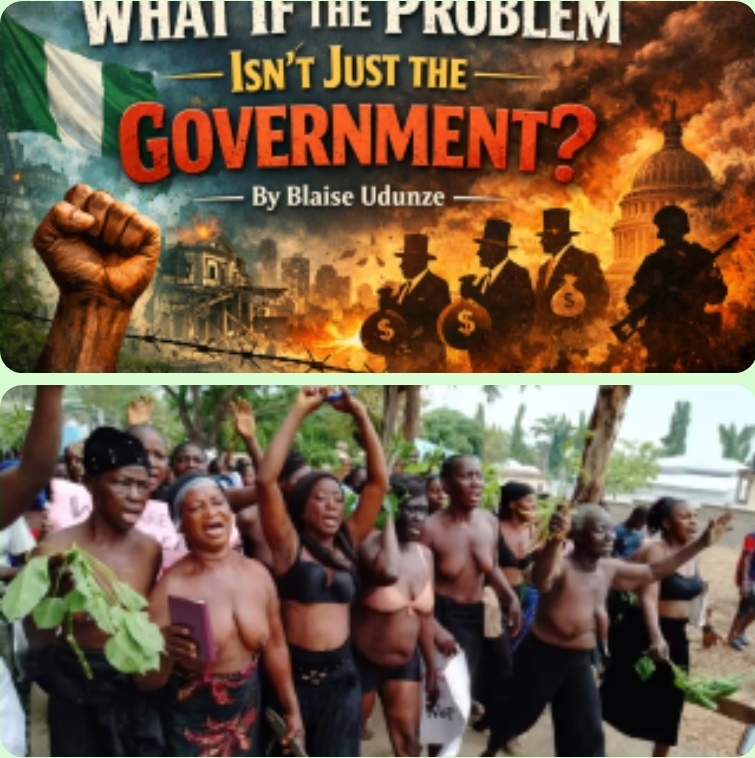
By Blaise Udunze
Recent reports in the media space highlighting threats of “naked protests” by market women across several states if the federal government fails to address the issue of hardship underscore the depth of hunger and poverty gripping the nation. No doubt, there is hardship in the country, of which Nigeria’s poverty crisis is often framed as the government’s failure, poor policies, weak institutions, corruption, and economic mismanagement.
From a balanced viewpoint, while these factors are undeniable, they do not tell the full story in its totality. The reality is that the majority of Nigerians, being the larger populace experiencing this challenge, will definitely oppose the ideology that poverty in Nigeria is not merely a policy problem; it is also a societal one. The underlying truth is that this is shaped by citizens’ behaviours, choices, cultural norms, and civic attitudes. This will remain a lived experience of the people until this dimension is confronted honestly; reforms will continue to yield limited results.
Nigeria’s economy has witnessed growth as inflation has decelerated, with headline inflation easing to 15.15percent and food inflation retreating to 10.84 per cent. The exchange rate was stabilising, and foreign reserves ($46.7 billion) had climbed to a seven-year peak. Despite the growth figures and ambitious government targets, millions of Nigerians remain trapped in poverty. More alarming is the recent estimates suggesting that an additional two million people could fall below the poverty line this year alone.
The intrigue is that the geographic distribution of these figures tells a deeper story, and this is more revealing than the numbers; however, there is an uneven geographical spread. Of concern here, which is troubling, is why states such as Yobe, Jigawa, Katsina, Kano, and Zamfara tend to experience or be deep in poverty when compared to other states like Lagos, Port Harcourt, Aba, Enugu, and Onitsha, which are projected to experience less poverty. This disparity raises a critical question, which calls for an urgent answer to why poverty outcomes differ so starkly within the same country, because no doubt, much of the explanation lies beyond government failures.
While governance challenges exist nationwide, the explanation extends beyond Abuja. Perhaps this is from deliberate ignorance of the people; the reality is that it lies in education, cultural practices, social norms, and individual responsibility play decisive roles in shaping economic outcomes.
One key alarming fact that has deeply entrenched poverty in many northern states, unlike other regions, is limited access to education, especially for girls, early marriage, polygamy, and large family sizes. There have been several factors that reinforce cycles of poverty by stretching limited household resources, reducing educational attainment, and limiting economic mobility, and this will continue to be a long-standing challenge or lived experience for the people if not addressed.
It is clearer that practical comparison illustrates this reality. Taking into consideration that a low-income worker in Yobe who marries four wives and raises over twenty children will inevitably struggle to provide adequate education, healthcare, and opportunities for his family, while in contrast, a similar worker in Aba is more likely to marry later, have fewer children, and invest in their education. Without much ado, over time, the children in the latter household acquire skills, productivity, and economic relevance because their parents chose to prioritise education for them, while the former remain trapped in subsistence and dependency. These differences are not subjective; they are structural and measurable.
Religion and culture further complicate the picture as record has it that Nigeria is one of the most religious countries in the world, yet religiosity often serves personal aspirations, prosperity, miracles, or divine favour rather than reinforcing civic responsibility and social ethics. Today in Nigeria, political leaders frequently reinforce this distortion and moral narrative. Only recently, it was announced that public officials in Abuja celebrate marrying off multiple children at once, some governors borrow billions to spend public funds on religious pilgrimages, while underfunding education, healthcare, and infrastructure, they send a clear message about priorities. In contrast, states that invest deliberately in education, such as Enugu with its smart school initiatives, demonstrate how leadership choices influence societal outcomes.
Still, the crisis of responsibility is not confined to any region. It is national, as proved during the discussions at Lagos State’s 12th Summit of the Association of Retired Heads of Service and Permanent Secretaries (ALARHOSPS), it was emphasised that societal progress depends not only on leadership but on citizenship behaviour. According to Professor Wusu Onipede, citizenship is defined by commitment to collective welfare, not mere residence.
The truth is not far-fetched, going by the saying that actions, positive or negative, directly impact society. What would have informed the common actions, such as stealing public assets, vandalising infrastructure, ignoring traffic laws, or tolerating corruption, all accumulate into widespread societal harm as seen in our everyday lives. Conversely, volunteering, mentorship, and community engagement generate resilience, opportunity, and shared prosperity. With close reading, one will notice that this dynamic was captured succinctly in Professor Oluwatomi Alade’s “Triangle for Change,” which pointed to the home, the school, and the community. Parents must brace up to understand that the primary responsibility is upon them to start prioritising education, teachers who impart both knowledge and character, and communities that uphold civic values create the foundation for sustainable development because the truth is that the change does not only rest on the government. In the same manner, it will be said that neglect in any of these spheres, whether through early marriage, disregard for schooling, or normalisation of polygamy, undermines national progress.
Religious institutions, as Professor Oguntola-Laguda argues, must also evolve, which means that beyond spiritual teachings, they should emphasise practical social ethics in the areas of responsibility, productivity, gender inclusion, and civic duty. In regions where harmful norms persist, faith leaders, traditional authorities, and elders possess the influence necessary to drive change, if they choose not to use it, otherwise the society will remain impoverished.
Globally, the link between social norms and poverty is well established, and norms that condone child marriage, gender exclusion, or unchecked family sizes perpetuate intergenerational deprivation. Over the period, in other countries, it is clear that economic interventions alone cannot dismantle these patterns because countries like India show that combining education incentives, political inclusion, and social protection can reduce poverty among marginalised groups. Initiatives such as Uganda’s SASA, which is a program that demonstrates that shifting attitudes toward gender and empowerment lead to improved economic outcomes. Nigeria’s poverty strategy must similarly integrate social transformation with economic reform.
None of this absolves government responsibility. Poorly sequenced reforms, rising taxes, insecurity, weak infrastructure, and inadequate social protection continue to deepen hardship. Senator David Mark of the African Democratic Congress has criticised what he terms “vicious policies” that worsen citizens’ vulnerability. Nigerians are acutely aware of these failures. What they demand is not statistics or political rhetoric, but practical policies that reduce hardship, enable productivity, and promote inclusion.
Even at this, Nigerians must take into cognisance that government action alone is insufficient. Poverty cannot be eradicated where large families are unsustainable, education is undervalued, and corruption is tolerated at the household and community levels. Individual responsibility remains the missing link. Citizens must be discreet in their timing for marriage until they can provide adequately, manage family sizes responsibly, educate all children, especially girls and reject the glorification of excess and impunity.
Insecurity further illustrates this shared responsibility. Though one will argue that the state bears the constitutional duty to protect lives and property, law and order, what about the dwellers? Communities must actively support security efforts through vigilance, information sharing, and conflict resolution. Silence in the face of crime and corruption enables disorder because independence loses meaning when citizens disengage from safeguarding their own communities.
Another critical aspect that is akin to insecurity is that economic development also falters when citizens undermine progress through dishonesty, rent-seeking, and apathy. What people fail to understand is that entrepreneurship, accountability, and cooperation are as vital as government-led job creation. The same thing can be said of cooperatives, vocational training, and local enterprise, which can deliver immediate relief and long-term sustainability. Wealthier Nigerians must focus on genuine social investment, creating opportunities, supporting education, and building institutions that outlast personal interest or individual generosity, rather than charity or wasteful spending or fueling crimes. Social responsibility must become a social norm.
One laughable misconception people harbour about independence, which must be clarified, is that it is not simply freedom from colonial rule; it is the presence of civic responsibility. It must be understood that poverty persists not only because of policy gaps but because of harmful norms, cultural practices, and neglected duties. Anyone can argue this, but the truth is that there will always be a replay of this menace kicked against because every child denied education, every early marriage, every act of corruption, reinforces the cycle.
Breaking this repeating problem, known as poverty, takes several coordinated strategies working together, not just one solution. There must be an understanding that the issues are complex and interconnected; they must be addressed from different angles at the same time. For these reasons, the government must provide stable policies, infrastructure, and social protection and the citizens, in like manner, must reform behaviours that perpetuate poverty. The same must be said of the families that must prioritise education, and also, the communities must reward civic engagement and innovation. Religious and cultural leaders must promote responsibility alongside faith because these are critical platforms that have the attention of the greater number of people. The policymakers at this juncture must ensure that policies not only deliver relief but also incentivise behaviours that support sustainable development.
Without too much argument, it is glaring that Nigeria’s potential is evident in states and communities that have embraced education, civic virtue, and social reform. Judging by the developments in different states, one will conclude that Lagos demonstrates how engagement and accountability improve outcomes, while Enugu shows that investing in children yields long-term dividends. Conversely, regions where harmful norms persist remain trapped, regardless of federal spending.
Without much ado, all Nigerian stakeholders must come to the terms that Nigeria’s poverty challenge cannot be reduced to government failure alone. It is a collective problem rooted in culture, norms, and personal choices because sustainable development demands both accountable leadership and responsible citizenship. The fact remains that poverty will remain an enduring shadow, irrespective of the repeated threats of “naked protests,” but until Nigerians fully embrace their role as architects, not just beneficiaries of national progress. True independence begins when citizens accept that the future of the nation rests as much in their daily choices as in public policy.
Blaise, a journalist and PR professional, writes from Lagos and can be reached via: [email protected]
-

 Feature/OPED6 years ago
Feature/OPED6 years agoDavos was Different this year
-
Travel/Tourism9 years ago
Lagos Seals Western Lodge Hotel In Ikorodu
-

 Showbiz3 years ago
Showbiz3 years agoEstranged Lover Releases Videos of Empress Njamah Bathing
-

 Banking8 years ago
Banking8 years agoSort Codes of GTBank Branches in Nigeria
-

 Economy3 years ago
Economy3 years agoSubsidy Removal: CNG at N130 Per Litre Cheaper Than Petrol—IPMAN
-

 Banking3 years ago
Banking3 years agoSort Codes of UBA Branches in Nigeria
-

 Banking3 years ago
Banking3 years agoFirst Bank Announces Planned Downtime
-

 Sports3 years ago
Sports3 years agoHighest Paid Nigerian Footballer – How Much Do Nigerian Footballers Earn





